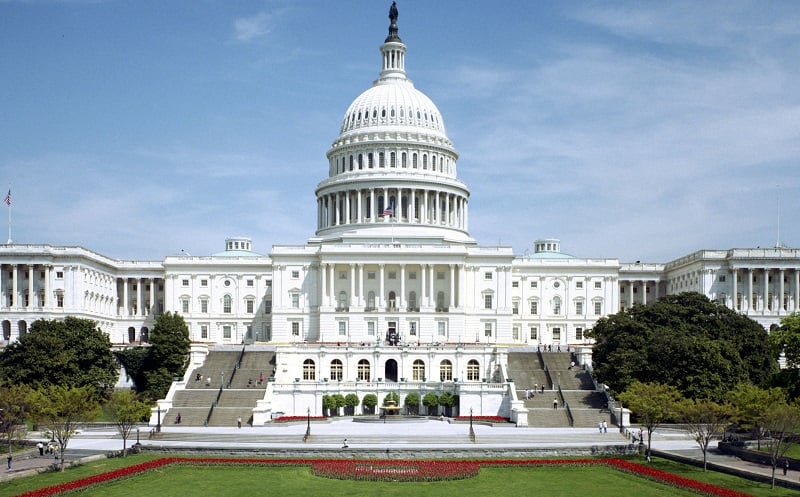This week, Congress finally passed a funding bill for NIH for fiscal year (FY) 2026. The bill includes an increase of ~$415 million for the National Institutes of Health, including a $10 million increase for diabetes research, and language we had advocated to protect NIH by limiting a budget maneuver called multi-year funding, prohibiting arbitrary caps to indirect cost rates, requiring grants be paid within 5 business days, and reclaiming congressional authority over spending. This was a major victory considering that originally the administration proposed a 40% cut to NIH research, cancelled thousands of grants, and proposed restructuring the NIH in ways that would disrupt endocrine research.
While the Endocrine Society was not the only group advocating for funding for the National Institutes of Health (NIH), we were one of the most vocal. We worked for a year to achieve our goals and successfully used online advocacy campaigns, Hill Days, visits to congressional offices, and briefings to influence. In addition, the Endocrine Society convened other professional medical societies, patient advocacy groups to share the same messages. Our last effort was a letter to congressional leadership that we obtained over 140 organizations to join bolstering our individual efforts.
Attention now turns quickly to the upcoming budget cycle for FY 2027. We expect that President Trump will release his budget in the next several weeks and anticipate the budget to include proposals to cut research funding. We will continue to push for steady, sustainable increases in funding for NIH and we are organizing a ‘virtual’ capitol hill day for Endocrine Society members in March to ensure that Congress continues to prioritize and protect NIH. If you are not among the members who are joining us to meet with Congressional staff – stay tuned for ways to add your voice and influence critical funding decisions by sending letters to Congress through our campaigns.
This week, Congress passed and the president signed into law legislation to reauthorize the Special Diabetes Program (SDP) and extend the Medicare telehealth waivers. The legislation was part of a large appropriations package, which funds several agencies including the Department of Health and Human Services (HHS). The new law funds SDP at $200 million per-program per-year, a $40 million increase for each component. The Society was successful in advocating for this funding increase, and we worked closely with Senators Susan Collins (R-ME) and Jeanne Shaheen (D-NH), the co-chairs of the Senate Diabetes Caucus, and Representatives Diana DeGette (D-CO) and Michael Bilirakis (R-FL), the co-chairs of the House Diabetes Caucus to extend the program.
The Endocrine Society is a leading advocate for SDP. SDP is made up of two components. SDP funds type 1 diabetes research being done by the National Institute of Health’s National Institute of Diabetes and Digestive and Kidney Disease. It also supports prevention, education, and treatment programs for indigenous communities across the nation, which is administered through the Indian Health Service. Senator Collins posted a press release on her website celebrating the SDP funding increase, which featured a quote from the Endocrine Society’s Chief Medical Officer, Dr. Robert W. Lash. The legislation also extends the Medicare telehealth waivers for two years, which ensures that Medicare beneficiaries can receive care from their physician via telehealth from their home. Endocrinologists are the largest user of telehealth in Medicare, and the Society has been a leading voice in urging Congress to extend these important flexibilities and expand access to telehealth.
This week, the Senate Committee on Health, Education, Labor, and Pensions (HELP), which oversees the National Institutes of Health (NIH), held a hearing on modernizing NIH. Dr. Jayanta Bhattacharya, Director of NIH, answered questions from members of the committee about topics ranging from drug pricing to gain of function research to vaccine scheduling and several policy issues that affect endocrine researchers.
Several of the senators on this committee expressed concerns about the impacts of canceled grants and clinical trials on patients and research progress and what the future of the biomedical workforce would look like moving forward. Senator Susan Collins (R-ME) expressed concerns about how cuts to diversity, equity, and inclusion have negatively impacted women’s health research and research on health disparities and how the current funding environment is negatively influencing early career scientists’ decisions to remain in the research field. Both Senators Lisa Murkowski (AK-R) and Tammy Baldin (WI-D) raised concerns about gaps in the leadership of NIH’s Institutes and Centers (IC). Senator Baldwin reminded the NIH Director about the language she included in the NIH funding bill that directs NIH to ensure that external scientists are included in the search process for new IC directors and pressed the Director about the consequences of increasing multi-year funding. Senator Patty Murray (WA-D) pressed Dr. Bhattacharya about the impacts of funding cuts on NIH-supported clinical trials and raised concerns about the expiring appointments of Advisory Council members, which are required by law to meet and provide final review of grant applications before grant awards can be distributed.
Throughout the hearing, Dr. Bhattacharya reiterated his commitment to restoring trust in science, supporting and retaining early career researchers, and ensuring that NIH’s focus remains on improving the health of Americans. When asked about the impact of canceled clinical trials on patients, he repeatedly expressed that he had instructed for those patients to receive continuity of care, though that was at the responsibility of the researchers and not NIH.
The Endocrine Society will continue to advocate for funding for endocrine research and policies that support and protect its researchers.

We rely on your voice to advocate for our policy priorities. Join us to show our strength as a community that cares about endocrinology. Contact your US representatives or European Members of Parliament through our online platform. Take action and make a difference today.